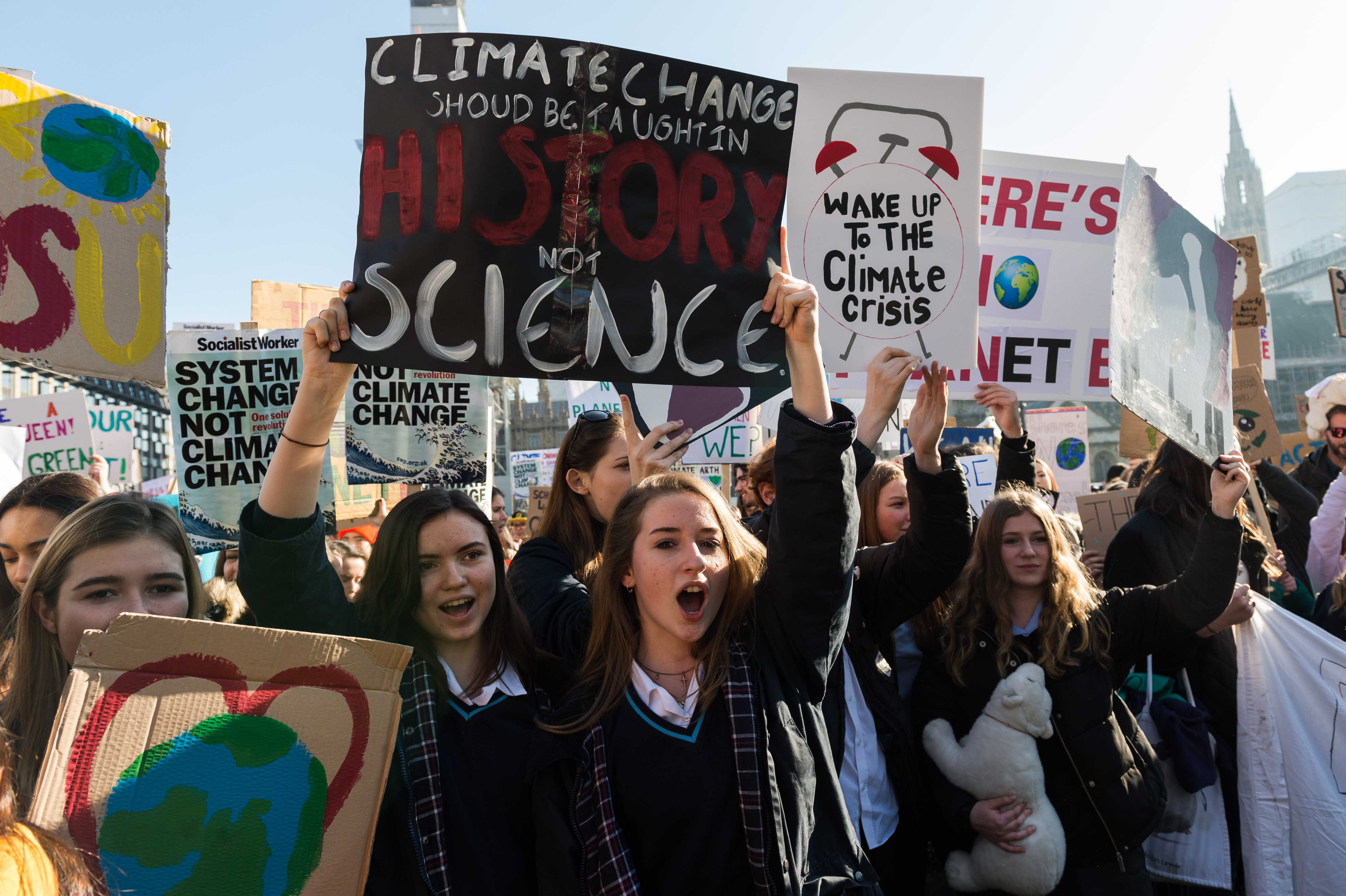This story was originally published by the Guardian and is reproduced here as part of the Climate Desk collaboration.
The students striking from schools around the world to demand action on climate change have issued an uncompromising open letter stating: “We are going to change the fate of humanity, whether you like it or not.”
The letter, published by the Guardian, says: “United we will rise on 15 March and many times after until we see climate justice. We demand the world’s decision makers take responsibility and solve this crisis. You have failed us in the past. [But] the youth of this world has started to move and we will not rest again.”
The Youth Strikes for Climate movement is not centrally organized, so keeping track of the fast-growing number of strikes is difficult, but many are registering on FridaysForFuture.org. So far, there are almost 500 events listed to take place on March 15 across 51 countries, making it the biggest strike day so far. Students plan to skip school across Western Europe, from the U.S. to Brazil and Chile, and from Australia to Iran, India, and Japan.
“For people under 18 in most countries, the only democratic right we have is to demonstrate. We don’t have representation,” said Jonas Kampus, a 17-year-old student activist, from near Zurich, Switzerland. “To study for a future that will not exist, that does not make sense.”
The letter says: “We are the voiceless future of humanity … We will not accept a life in fear and devastation. We have the right to live our dreams and hopes.” Kampus helped initiate the letter, which was created collectively via a global coordination group numbering about 150 students, including the first youth climate striker, Sweden’s Greta Thunberg.
The strikes have attracted some criticism, and Kampus said: “We wanted to define for ourselves why we are striking.” Another member of the coordination group, Anna Taylor, 17, from north London, U.K., said: “The importance of the letter is it shows this is now an international movement.”
Taylor said: “The rapid growth of the movement is showing how important it is and how much young people care. It is vital for our future.” Janine O’Keefe, from FridaysForFuture.org, said: “I’ll be very happy with over 100,000 students striking on March 15. But I think we might reach even beyond 500,000 students.”
Thunberg, now 16 years old and who began the strikes with a solo protest beginning last August, is currently on holiday from school. She was one of about 3,000 student demonstrators in Antwerp, Belgium, on Thursday, and joined protesters in Hamburg on Friday morning.
In recent days, she has sharply rejected criticism of the strikes from educational authorities, telling the Hong Kong Education Bureau: “We fight for our future. It doesn’t help if we have to fight the adults too.” She also told a critical Australian state education minister his words “belong in a museum.”
The strikes have been supported by Christiana Figueres, the U.N.’s climate chief when the Paris deal to fight global warming was signed in 2015. She said: “It’s time to heed the deeply moving voice of youth. The Paris Agreement was a step in the right direction, but its timely implementation is key.” Michael Liebreich, a clean energy expert, said: “Anyone who thinks [the strikes] will fizzle out any time soon has forgotten what it is to be young.”
In the U.K., Taylor said more than 10,000 students went on strike on February 15: “I’m anticipating at least double that on March 15.”
The strikes would not end, Taylor said, until “environmental protection is put as politicians’ top priority, over everything else. Young people are cooperating now, but governments are not cooperating anywhere near as much as they should.” She said students were contacting her from new countries every day, including Estonia, Iceland, and Uganda in recent days.
Kampus, who was invited to meet the Swiss environment minister, Simonetta Sommaruga, on Wednesday, said: “The strikes will stop when there is a clear outline from politicians on how to solve this crisis and a pathway to get there. I could be doing so many other things. But I don’t have time as we have to solve this crisis. My dream is to have a life in peace.”




